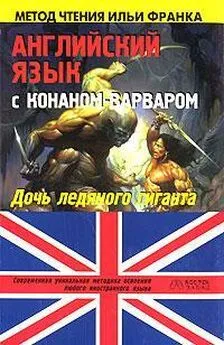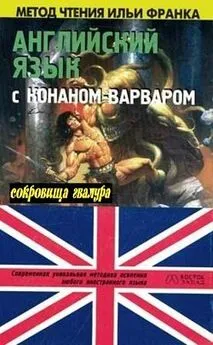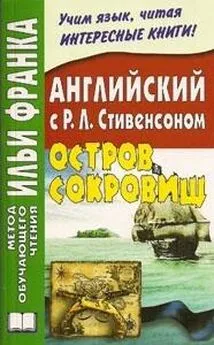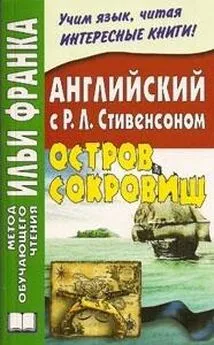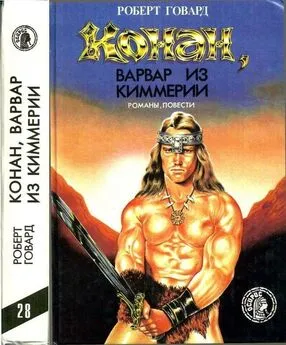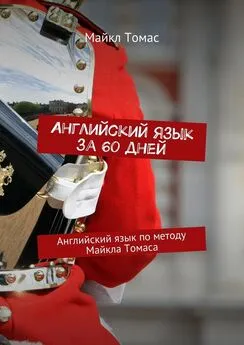Роберт Говард - Английский язык с Конаном-варваром
- Название:Английский язык с Конаном-варваром
- Автор:
- Жанр:
- Издательство:АСТ, Восток-Запад
- Год:2007
- Город:Москва
- ISBN:5-17-042032-3, 5-478-00503-7
- Рейтинг:
- Избранное:Добавить в избранное
-
Отзывы:
-
Ваша оценка:
Роберт Говард - Английский язык с Конаном-варваром краткое содержание
В книге предлагается произведения Роберта Е. Говарда, адаптированные (без упрощения текста оригинала) по методу Ильи Франка. Уникальность метода заключается в том, что запоминание слов и выражений происходит за счет их повторяемости, без заучивания и необходимости использовать словарь. Пособие способствует эффективному освоению языка, может служить дополнением к учебной программе. Предназначено для студентов, для изучающих английский язык самостоятельно, а также для всех интересующихся английской культурой.
Метод чтения Ильи Франка
Содержание:
Дочь ледяного великана
Проклятие монолита
Замок ужаса
За Черной рекой
Тени Замбулы
Английский язык с Конаном-варваром - читать онлайн бесплатно полную версию (весь текст целиком)
Интервал:
Закладка:
He felt lonely, in spite of his companion (он чувствовал себя одиноко, несмотря на своего спутника). Conan was as much a part of this wilderness as Balthus was alien to it (насколько Конан был частью этих диких мест, настолько Балтус был чужаком здесь). The Cimmerian might have spent years among the great cities of the world (возможно, Киммериец провел годы среди = в великих городах мира); he might have walked with the rulers of civilization (возможно, он гулял с правителями цивилизации); he might even achieve his wild whim some day and rule as king of a civilized nation (возможно, он даже добьется /исполнения/ своей дикой причуды однажды и будет править, как король цивилизованной страны); stranger things had happened (более странные вещи случались = случались вещи и более странные ). But he was no less a barbarian (но он был не кем иным, как варваром). He was concerned only with the naked fundamentals of life (он интересовался лишь голыми жизненными основами). The warm intimacies of small, kindly things (теплые близкие отношения из приятных мелочей: «маленьких приятных вещей»), the sentiments and delicious trivialities that make up so much of civilized men's lives were meaningless to him (чувства и прелестные банальности, которые составляют так много в жизни цивилизованных людей, были бессмысленны для него). A wolf was no less a wolf because a whim of chance caused him to run with the watch-dogs (волк оставался волком: «был не менее волком», оттого, что = пусть даже каприз судьбы заставил его бежать со сторожевыми псами). Bloodshed and violence and savagery were the natural elements of the life Conan knew (кровопролитие и насилие и дикость были естественными составляющими жизни, /которую/ знал Конан); he could not, and would never, understand the little things that are so dear to civilized men and women (он не мог и никогда /не/ захотел бы понять мелочей, которые так дороги цивилизованным мужчинам и женщинам).
alien [ˈeɪljən], achieve [əˈʧi: v], dear [dɪə]
He felt lonely, in spite of his companion. Conan was as much a part of this wilderness as Balthus was alien to it. The Cimmerian might have spent years among the great cities of the world; he might have walked with the rulers of civilization; he might even achieve his wild whim some day and rule as king of a civilized nation; stranger things had happened. But he was no less a barbarian. He was concerned only with the naked fundamentals of life. The warm intimacies of small, kindly things, the sentiments and delicious trivialities that make up so much of civilized men's lives were meaningless to him. A wolf was no less a wolf because a whim of chance caused him to run with the watch-dogs. Bloodshed and violence and savagery were the natural elements of the life Conan knew; he could not, and would never, understand the little things that are so dear to civilized men and women.
The shadows were lengthening when they reached the river and peered through the masking bushes (тени удлинялись, когда они добрались до реки и выглянули сквозь маскирующие кусты). They could see up and down the river for about a mile each way (они могли видеть /местность/ выше и ниже по реке приблизительно на милю в обе стороны: «каждый путь»). The sullen stream lay bare and empty (медленно текущий поток лежал открытый и пустынный). Conan scowled across at the other shore (Конан бросил сердитый взгляд на другой берег; to scowl — хмуриться, бросать сердитый взгляд, смотреть сердито ).
"We've got to take another chance here (мы должны еще раз рискнуть здесь: «взять еще один шанс здесь»). We've got to swim the river (мы должны переплыть реку). We don't know whether they've crossed or not (мы не знаем, переплыли ли они или /еще/ нет). The woods over there may be alive with them (лес вон там может быть живым с ними = кишеть ими ). We've got to risk it (нам нужно рискнуть). We're about six miles south of Gwawela (мы около шести миль = милях в шести южнее Гвавелы)."
scowl [skaul], shadow [ˈʃædəu], lengthen [ˈleŋƟən]
The shadows were lengthening when they reached the river and peered through the masking bushes. They could see up and down the river for about a mile each way. The sullen stream lay bare and empty. Conan scowled across at the other shore. "We've got to take another chance here. We've got to swim the river. We don't know whether they've crossed or not. The woods over there may be alive with them. We've got to risk it. We're about six miles south of Gwawela."
He wheeled and ducked as a bowstring twanged (он перевернулся и быстро наклонился, когда тренькнула тетива лука). Something like a white flash of light streaked through the bushes (что-то, словно белая вспышка света, пронеслось сквозь кусты). Balthus knew it was an arrow (Балтус знал, это была стрела). Then with a tigerish bound Conan was through the bushes (затем тигриным прыжком Конан был = бросился через кусты). Balthus caught the gleam of steel as he whirled his sword (Балтус уловил проблеск стали, когда он завертел своим мечом), and heard a death scream (и услышал смертельный крик). The next instant he had broken through the bushes after the Cimmerian (/в/ следующий миг он бросился сквозь кусты за киммерийцем).
twang [twæŋ], caught [kɔ: t], death [deƟ]
He wheeled and ducked as a bowstring twanged. Something like a white flash of light streaked through the bushes. Balthus knew it was an arrow. Then with a tigerish bound Conan was through the bushes. Balthus caught the gleam of steel as he whirled his sword, and heard a death scream. The next instant he had broken through the bushes after the Cimmerian.
A Pict with a shattered skull lay face-down on the ground, his fingers spasmodically clawing at the grass (пикт с раздробленным черепом лежал лицом вниз на земле, его пальцы спазматически цеплялись за траву; to claw — цепляться ). Half a dozen others were swarming about Conan, swords and axes lifted (полдюжины других толпились вокруг Конана /с/ поднятыми мечами и топорами). They had cast away their bows, useless at such deadly close quarters (они отбросили свои луки, бесполезные на таком ужасно близком расстоянии). Their lower jaws were painted white, contrasting vividly with their dark faces (их нижние челюсти были окрашены белым, контрастируя четко с их темными лицами), and the designs on their muscular breasts differed from any Balthus had ever seen (а рисунки на их мускулистых грудных клетках отличались от любых, /которые/ Балтус когда-либо видел).
spasmodically [spæzˈmɔdɪklɪ], useless [ˈju: slɪs], quarter [ˈkwɔ: tə]
A Pict with a shattered skull lay face-down on the ground, his fingers spasmodically clawing at the grass. Half a dozen others were swarming about Conan, swords and axes lifted. They had cast away their bows, useless at such deadly close quarters. Their lower jaws were painted white, contrasting vividly with their dark faces, and the designs on their muscular breasts differed from any Balthus had ever seen.
One of them hurled his ax at Balthus and rushed after it with lifted knife (один из них бросил свой топор в Балтуса и бросился /вслед/ за ним с поднятым ножом). Balthus ducked and then caught the wrist that drove the knife licking at his throat (Балтус пригнулся и затем поймал запястье, которое направило нож, нанося удар в его горло = и нанес удар ему в горло ). They went to the ground together, rolling over and over (они пошли = упали на землю вместе, перекатываясь и перекатываясь). The Pict was like a wild beast, his muscles hard as steel strings (пикт был как дикий зверь, его мускулы крепки, как стальные канаты).
One of them hurled his ax at Balthus and rushed after it with lifted knife. Balthus ducked and then caught the wrist that drove the knife licking at his throat. They went to the ground together, rolling over and over. The Pict was like a wild beast, his muscles hard as steel strings.
Balthus was striving to maintain his hold on the wild man's wrist and bring his own ax into play (Балтус старался удержать /свою/ хватку на запястье дикаря и пустить в ход свой /собственный/ топор), but so fast and furious was the struggle that each attempt to strike was blocked (но такой быстрой и яростной была борьба, что каждая попытка ударить блокировалась). The Pict was wrenching furiously to free his knife hand (пикт извивался яростно, /чтобы/ освободить свою руку с ножом), was clutching at Balthus' ax, and driving his knees at the youth's groin (вцепился в топор Балтуса и давил /своими/ коленями в пах юноши). Suddenly he attempted to shift his knife to his free hand (вдруг он попытался перехватить /свой/ нож в /его/ свободную руку), and in that instant Balthus, struggling up on one knee, split the painted head with a desperate blow of his ax (и в это мгновение Балтус, встав на одно колено, раскроил раскрашенную голову отчаянным / страшным ударом своего топора).
wrist [rɪst], maintain [meɪnˈteɪn], wrench [renʧ]
Balthus was striving to maintain his hold on the wild man's wrist and bring his own ax into play, but so fast and furious was the struggle that each attempt to strike was blocked. The Pict was wrenching furiously to free his knife hand, was clutching at Balthus' ax, and driving his knees at the youth's groin. Suddenly he attempted to shift his knife to his free hand, and in that instant Balthus, struggling up on one knee, split the painted head with a desperate blow of his ax.
Читать дальшеИнтервал:
Закладка:
